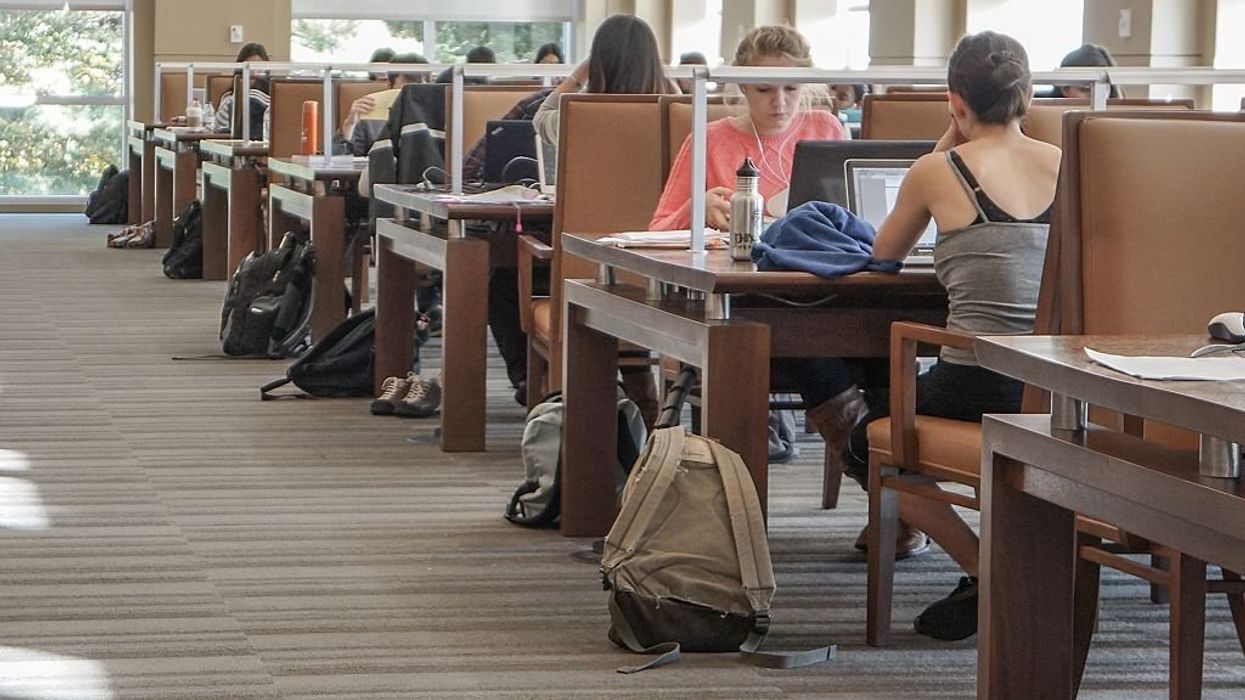
Photo by JHU Sheridan Libraries/Gado/Getty Images

Students attending Stanford University are encouraged to report "incidents of bias" from "microaggressions to macroaggressions" using the school's anonymous "Protected Identity Harm Reporting" system.
Stanford described its PIH reporting system as a "critical tool in addressing incidents of bias," according to an October report. The PIH was implemented to help students who believe they have been victims of bias-related harm and collect data to "develop a deeper understanding" of the campus climate.
"The PIH Reporting process is the university's process to address incidents where a community member experiences harm because of their identity," stated the Stanford Report. "The process addresses conduct or an incident that adversely and unfairly targets an individual or group on the basis of one or more actual or perceived characteristics: race, color, national origin, gender or sex, age, disability, religion, sexual orientation, gender identity or expression, veteran status, marital status or any other characteristic protected by applicable law."
The university provides students with examples of possible incidents, including students making racist remarks on social media, making sexist jokes at parties, using ableist slurs, and defacing LGBT+ fliers.
Stanford encourages students to report incidents that have occurred on campus, off campus, and online. However, the school explained that the reporting system does not include a judicial or investigative process. Instead, PIH addresses harm reduction and a "path to resolution."
The Stanford Report noted that the system does not have a disciplinary process for all reported incidents because "while the university may denounce these incidents as antithetical to our values and standards, most speech is protected unless it rises to the level of a hate crime, unlawful harassment, or discrimination."
Critics of the system claimed that university officials quietly implemented PIH reporting and did not seek faculty input. Some argued that the system would damage the student climate by chilling free speech.
Accounting Professor Ivan Marinovic told the College Fix, "Anonymous reporting systems are reminiscent of some of the worst periods in human history. Despite the good intentions of those behind PIH, this system will harm Stanford's culture."
According to Marinovic, most faculty members are just learning about the system, which he claimed was "not widely debated at Stanford" before it was implemented.
"There needs to be more faculty oversight of these initiatives, which pop out of university bureaucracies that do not seem to understand the nature and mission of the institution they work for," he added.
While the reporting system was implemented in the summer of 2021, faculty members similarly told the Wall Street Journal they learned about it a month ago when the university's student newspaper published an article mentioning that the PIH system had received a complaint about a student reading Adolf Hilter's autobiography, "Mein Kampf."
Russell Berman stated he was "stunned" to find out about the anonymous reporting system. "It reminds me of McCarthyism," Berman said.
Juan Santiago, a professor of mechanical engineering, argued that the system is not voluntary for those accused of bias.
"If you're an 18-year-old freshman and you get contacted by an administrator and told you've been accused of some transgression, what are you going to do?" Santiago said. "They may not call that punitive, but that can be very stressful."
The WSJ reported that 77 faculty members signed a petition to press the university to investigate free speech and academic freedom on campus.
Dee Mostofi, a Stanford spokesperson, told the outlet that the PIH reporting system aims to help students get along.
"The process aims to promote a climate of respect, helping build understanding that much speech is protected while also offering resources and support to students who believe they have experienced harm based on a protected identity," Mostofi said.
Like Blaze News? Bypass the censors, sign up for our newsletters, and get stories like this direct to your inbox. Sign up here!